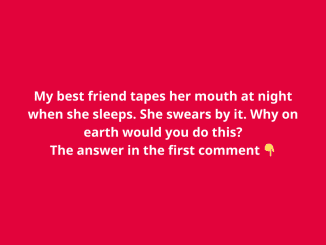Anemia might sound like a minor issue—just a little low on iron, right? But the truth is, it’s way more than just feeling tired. Anemia is your body’s cry for help, signaling that something is off beneath the surface. And if you ignore it? You could end up facing far bigger health issues down the line.
Whether you’re dealing with iron deficiency, vitamin B12 anemia, or something more serious, the warning signs often show up subtly. Let’s uncover the red flags your body throws up—and why it’s so important not to brush them off.
Constant Fatigue That Drains You

We all get tired. But if you’re constantly feeling like you’ve hit a wall—even after a full night’s sleep—that’s not normal. When you’re anemic, your body isn’t getting enough oxygen because it doesn’t have enough healthy red blood cells. That means your organs and muscles are basically gasping for air. No wonder you feel exhausted.
Pale or Yellowish Skin and Gums
Look in the mirror. If your skin looks unusually pale or your gums have lost their healthy pink color, that could be a sign your blood is low on hemoglobin. In people with darker complexions, the best way to spot this is by checking the inside of the lower eyelid or the nail beds.
Shortness of Breath Even Without Exercise
If you’re walking up a single flight of stairs and gasping for air, something’s not right. Anemia reduces your body’s oxygen supply, so even the easiest tasks can leave you winded. It’s like trying to run a marathon while breathing through a straw—your body just can’t keep up.
Dizziness or Frequent Headaches
Another sign that your brain isn’t getting enough oxygen? Dizziness, lightheadedness, and headaches that seem to come out of nowhere. If you feel faint when standing up too quickly or if your head pounds regularly, it’s time to investigate.
Video : Warning Signs of Folate Deficiency You Shouldn’t Ignore | signs of folate deficiency
Cold Hands and Feet
No, it’s not just the weather. When blood flow is limited, your extremities suffer first. That’s why many people with anemia report icy fingers and toes—even in warm environments. It’s your body focusing on survival by keeping blood near your vital organs.
Heart Palpitations or Irregular Heartbeats
Your heart works harder when your blood is low on oxygen. It tries to compensate by beating faster, which can make you feel like your heart is fluttering or racing. Over time, this stress can lead to an enlarged heart or even heart failure if the anemia is left untreated.
Brittle Nails and Hair Loss
Your nails and hair are like your body’s health dashboard. When you’re anemic, they can show signs of stress—nails may become brittle, ridged, or spoon-shaped, and you may notice your hair falling out more than usual. It’s your body reallocating resources to more vital areas.
Cravings for Strange Substances (Pica)
Ever feel like chewing ice, chalk, or even dirt? You’re not alone—and you’re not crazy. Pica is a real condition often linked to iron deficiency anemia. It’s your brain’s confused way of telling you something important is missing from your diet.
Restless Legs Syndrome

That annoying urge to move your legs, especially at night, might not just be anxiety—it could be anemia. Many people with low iron experience restless legs syndrome, making it even harder to sleep and contributing to that chronic exhaustion.
Tingling or Numbness in Hands and Feet
If you have vitamin B12 deficiency anemia, you might notice pins-and-needles sensations in your limbs. This happens because B12 plays a critical role in keeping your nerves healthy. Ignore it for too long, and the nerve damage could become permanent.
Why You Shouldn’t Shrug Off These Symptoms
The thing about anemia is that it sneaks up on you. You might feel a little off, a bit more tired than usual, or not quite yourself—and you keep going, thinking it’ll pass. But by the time symptoms are obvious, your body has likely been struggling for a while.
And anemia doesn’t always come alone. It can be a sign of deeper issues like:
- Chronic blood loss from ulcers or heavy periods
- Nutritional deficiencies
- Autoimmune disorders
- Bone marrow problems
- Chronic diseases like kidney failure or cancer
That’s why it’s so important to listen to the signs early and get tested if something feels off.
Video : BEST 15 Supplements Blood Flow & Circulation [Feet, Legs & Heart]
When to See a Doctor
Here’s the deal: if you recognize several of these symptoms, it’s time to talk to your healthcare provider. A simple blood test can confirm if you’re anemic—and from there, it’s often an easy fix with supplements, dietary changes, or treating the underlying cause.
Delaying treatment only gives anemia time to worsen and opens the door to bigger problems like heart complications or nerve damage.
Conclusion: Don’t Let Anemia Steal Your Energy—or Your Health
Anemia is more than just “feeling a little tired.” It’s your body waving a red flag. And if you’re constantly running on empty, short of breath, dizzy, or pale—it’s time to listen.
By recognizing the warning signs early, you can treat anemia before it derails your daily life. So don’t ignore what your body is trying to say. Tune in. Take action. And take your energy—and your health—back.


